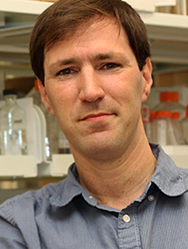PhD
Associate Professor, Division of Chemical Biology and Medicinal Chemistry
Vice Chair, Division of Chemical Biology and Medicinal Chemistry
UNC-Chapel Hill
Molecular Therapeutics
Area of Interest
Research in our lab is concentrated on the synthesis, assessment, and modification of potential therapeutic leads, especially those derived from natural products. We use chemical synthesis as well as genetic manipulation of the natural biosyntheses to access and modify compounds to study structure-activity relationships (SAR). These efforts involves the integration of basic concepts in organic reaction mechanisms, synthetic organic chemistry, biochemistry, molecular biology, bioinformatics and computational chemistry.
Awards and Honors
- Beckman Young Investigator Award, 2014
- American Association of Colleges of Pharmacy New Investigator Award, 2013
- National Institutes of Health National Cancer Institute Ruth L. Kirschstein Postdoctoral Fellowship, 2008-2011
- Robert M. Moriarty Graduate Fellowship, University of Illinois at Chicago, Chicago, IL, 2006-2007
- National Science Foundation/Japan Society for the Promotion of Science Fellowship, Kyoto University, Kyoto, Japan, 2005

